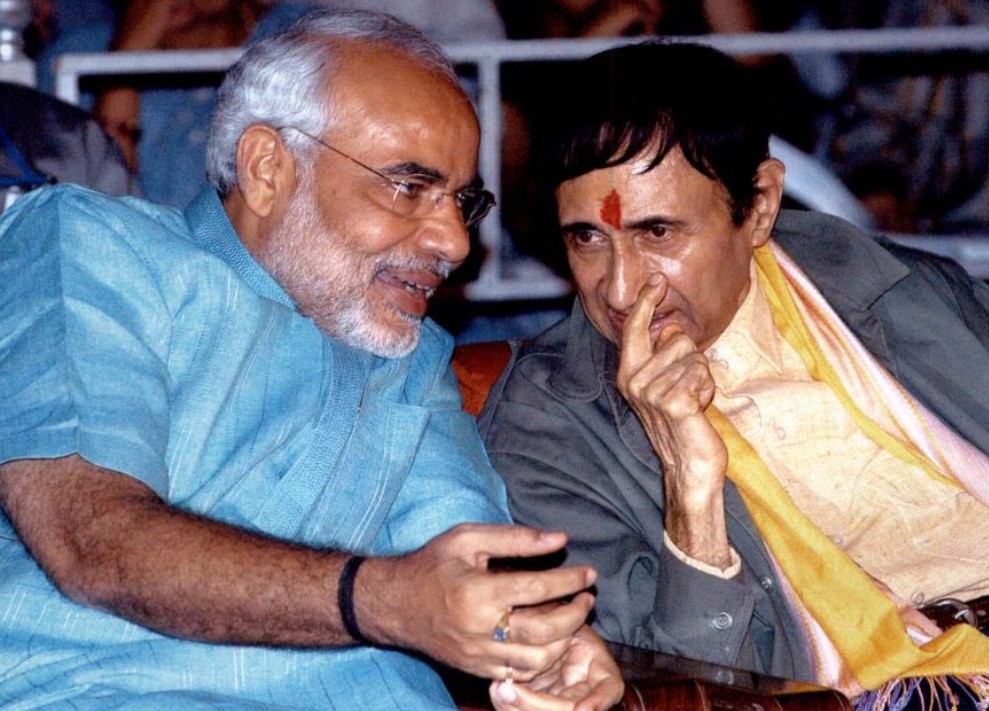Dev Anand Ji is remembered as an evergreen icon. His flair for storytelling and passion for cinema were unmatched. His films not only entertained but also reflected the changing society and aspirations of India,” Prime Minister Modi expressed in a statement released on Tuesday. Alongside these heartfelt words, he shared photographs of himself with the cinematic legend, further underscoring the depth of their connection.
In a rich tribute, Prime Minister Narendra Modi paid homage to the cinematic legend Dev Anand on the occasion of what would have been the star’s 100th birthday. Known for his iconic roles in films such as “Hum Dono,” “Tere Ghar Ke Samne,” “CID,” and “Guide,” Dev Anand left an indelible mark on Indian cinema before his passing in 2011 at the age of 88.
PM Narendra Modi Pays Rich Tribute to Iconic Actor Dev Anand
Dev Anand‘s journey in the world of cinema began in 1946 with his debut film, “Hum Ek Hain.” From there, he went on to establish himself as a leading star, captivating audiences with remarkable performances in movies like “Paying Guest,” “Baazi,” “Jewel Thief,” “Johny Mera Naam,” “Amir Garib,” “Warrant,” and “Hare Rama Hare Krishna.” Notably, he not only graced the silver screen as an actor but also demonstrated his directorial skills in the latter.
The timeless performances delivered by Dev Anand continue to influence generations of cinephiles and serve as a testament to his enduring legacy. Today, on what would have been his 100th birth anniversary, the nation comes together to celebrate the remarkable journey of this cinematic luminary.
In recognition of his outstanding contribution to Indian cinema, Dev Anand was bestowed with the prestigious Padma Bhushan in 2001 and the revered Dadasaheb Phalke Award in 2002. These accolades stand as enduring symbols of his immense impact on the world of entertainment and his place in the hearts of the Indian people.
As India commemorate today the life and work of Dev Anand on this significant milestone, the Prime Minister’s tribute resonates with the sentiment that his films were not just a source of entertainment but also mirrors reflecting the hopes and dreams of a nation.






